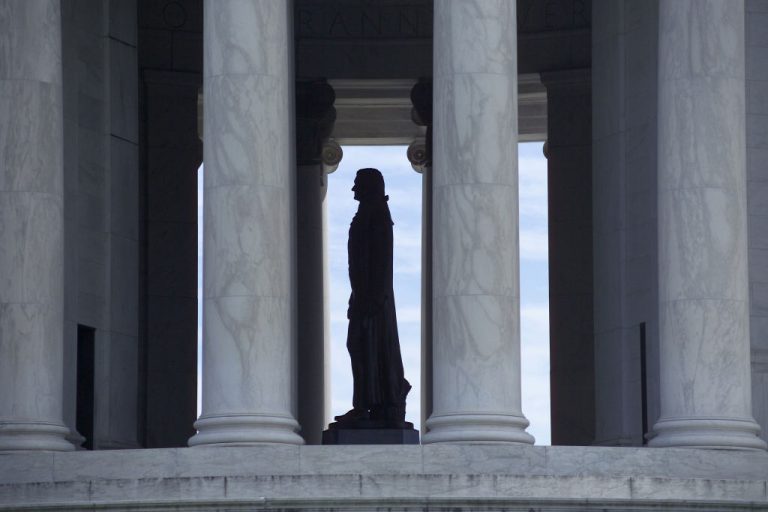After almost two centuries, on Monday, Nov. 22 the statue of American founding father, Thomas Jefferson, was removed from city hall in New York after the city’s Public Design Commission voted in favor of relocating the monument to a museum. The statue is bound for the New York Historical Society Museum where it will be kept on long-term loan.
“The removal was prompted by some city councilmembers who objected to the third president’s legacy as a slave owner, including members of the council’s Black, Latino and Asian caucus,” The Hill reported.
The 7-foot, 884-pound statue of the founding father, who wrote the Declaration of Independence, was removed from its pedestal inside the City Council chambers and packed into a wooden crate with some disagreeing with the plan because the Historical Society charges entrance fees which would make the publicly owned statue more difficult to view.
Cherry picking history
Others contested the removal of the statue arguing that Jefferson’s history was one that opposed slavery and that judging historical figures by modern standards undermines the figures’ historical significance and rewrites history.
Jefferson inherited slaves from his father when he was 24 and was forbidden from freeing them by British law until after the Revolutionary War broke out. He then worked to reform Virginia law and as the third president of the United States helped establish one of the first laws outlawing slavery. It is said that Jefferson also tried to write a condemnation of slavery into the Declaration of Independence.
Success
You are now signed up for our newsletter
Success
Check your email to complete sign up
Between July 1 and July 3, 1776, congressional delegates debated the Declaration of Independence, and the anti-slavery clause written by Thomas Jefferson was stricken from the Declaration.
Historians say that Thomas Jefferson characterized slavery as a “hideous blot” and a “moral depravity”, but the teaching of this period of history is complicated by the constant presence of slavery, including in Jefferson’s household, as he himself was a slaveowner.
Removal of Thomas Jefferson statue met with mixed reactions
There was significant debate over the fate of the NYC city hall statue of Jefferson which was crafted by French artist Pierre-Jeanne David d’Angers as a model for a bronze statue on display in the U.S. Capitol rotunda.
Michael Bogart, professor emeritus of art history at Stony Brook University, told The Guardian that the statue’s removal “deflects attention” from the actions of such controversial figures.
Charles Barron, a member of the New York assembly and a former council member, told the New York Times, “It should be destroyed. A statue should be for those who we honor for their exemplary service and duty to all of this country, not just the white race.”
In 2017, then-President Donald Trump appears to have predicted the removal of statues of figures like Jefferson stating, “George Washington was a slave-owner. So, will George Washington now lose his status? Are we going to take down statues to George Washington? How about Thomas Jefferson?”
Reactions opposing the removal of the statue quickly surfaced online.
Matt Schlapp, the American Conservative Union Chair with over 300-thousand followers, tweeted, “Remember when everybody mocked President Trump when he said that statues of George Washington and Thomas Jefferson would be next? The cultural marxists will not stop until every symbol of America’s greatness has been taken down.”
Conservative Chris Rose tweeted, “I do not see the logic of removing the statue of Thomas Jefferson from New York City Hall. Thomas Jefferson has been found guilty of being a man of his time, when what we consider wrong & immoral today was normal back then.”
In a letter from Jefferson to William Hamilton, dated April 22, 1800, Jefferson famously wrote, “I never considered a difference of opinion in politics, in religion, in philosophy, as cause for withdrawing from a friend.”















